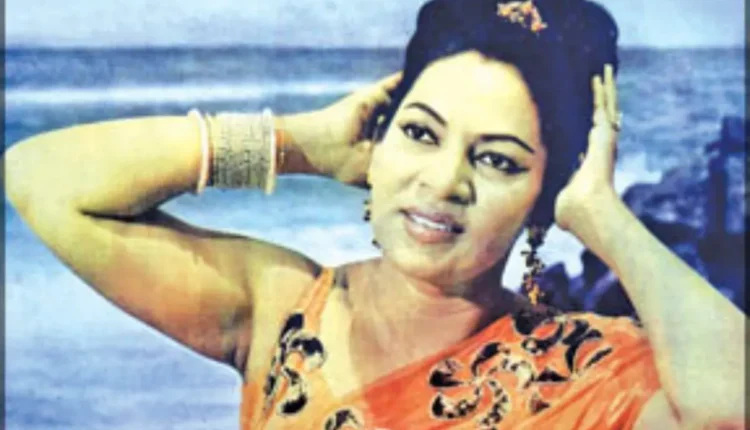Born Daisy Rasammah Daniels on January 15, 1923, in Ramboda, Nuwara Eliya, Sri Lanka, Rukmani Devi‘s journey to becoming the “Nightingale of Sri Lanka” is an inspiring tale of talent, passion, and dedication.
Her parents, John Daniel and Helen Rose, raised her in a Christian family of Tamil Colombo Chetty descent. From an early age, it was evident that young Daisy was destined for greatness, displaying a remarkable talent for singing and acting.
Rukmani Devi: Early Life and Blossoming Talent
Rukmani Devi’s early education was at St. Matthew’s School, followed by St. Clare’s School in Wellawatte. Her life took a significant turn when, at the age of seven, she sang Christmas carols and performed in a school play, ‘The Shoemaker’s Wife’.
This performance caught the attention of Walter Abeysinghe, a drama producer who cast her in the lead role of ‘Sita’ in his play ‘Ramayanaya’ in 1935. At just 12 years old, Rukmani’s journey into the world of drama had begun.
Rise to Stardom on Stage and Radio
Her performances were met with enthusiastic acclaim, leading to roles in other stage plays like “Jana Kiharanaya” and “Mayawathie”. Her portrayal of various characters, including Juliet in a Sinhala adaptation of Romeo and Juliet, showcased her versatility.
Her singing career also began to flourish in the mid-1940s when she started as a radio singer. Her voice captivated audiences and soon led her to a recording contract with His Master’s Voice (HMV) Gramophone Records Company.
In October 1938, she recorded her first song, “Siri Buddhagaya Vihare,” which became an instant hit. Despite not being formally trained in Hindustani classical music and facing stiff competition from other singers, her unique voice and emotive delivery set her apart. By 1945, she had recorded 44 songs, cementing her status as Sri Lanka’s foremost female singer of the gramophone era.
Transition to the Silver Screen
Rukmani Devi’s transition from stage to screen was seamless. Her first film role came in 1947 with the release of “Kadawunu Poronduwa,” the first Sinhala film. Her portrayal of ‘Ranjani’ marked the beginning of a prolific film career that spanned over three decades.
She starred in nearly 100 films, becoming a beloved figure in Sri Lankan cinema. Her performances in movies such as “Kapati Arakshakaya,” “Weradun Kurumanama,” and “Peralena Iranama” are remembered for their emotional depth and her captivating screen presence.
Musical Contributions
Rukmani Devi’s contribution to music was equally significant. She sang numerous immortal songs for films, leaving an indelible mark on the industry. Songs like “Sandyave Sriya,” “Pinsara Mage Soyura,” “Gala Kandeni,” and “Mavila Pena vi Rupe” remain timeless classics.
She collaborated with other renowned singers of her time, including Milton Mallawarachchi and H. R. Jothipala, creating memorable duets that are still cherished by fans.
Personal Life and Legacy
Rukmani Devi’s personal life was intertwined with the arts. She married Eddie Jayamanne, a veteran dramatist, actor, and singer, whom she met through the Minerva Dramatic Club. They shared a deep connection, both professionally and personally, and lived in Negombo. Despite her success, Rukmani remained humble and dedicated to her craft.
Tragically, her life was cut short in a car accident on October 28, 1978. However, her legacy continues to inspire generations of artists and fans. Posthumously, she was awarded the Sarasaviya ‘Rana Thisara’ Lifetime Achievement Award at the 1979 Sarasaviya Awards Festival, a testament to her enduring impact on Sri Lankan cinema and music.
Also Read:Maitreyi Ramakrishnan: The Journey of a Tamil Canadian Icon

